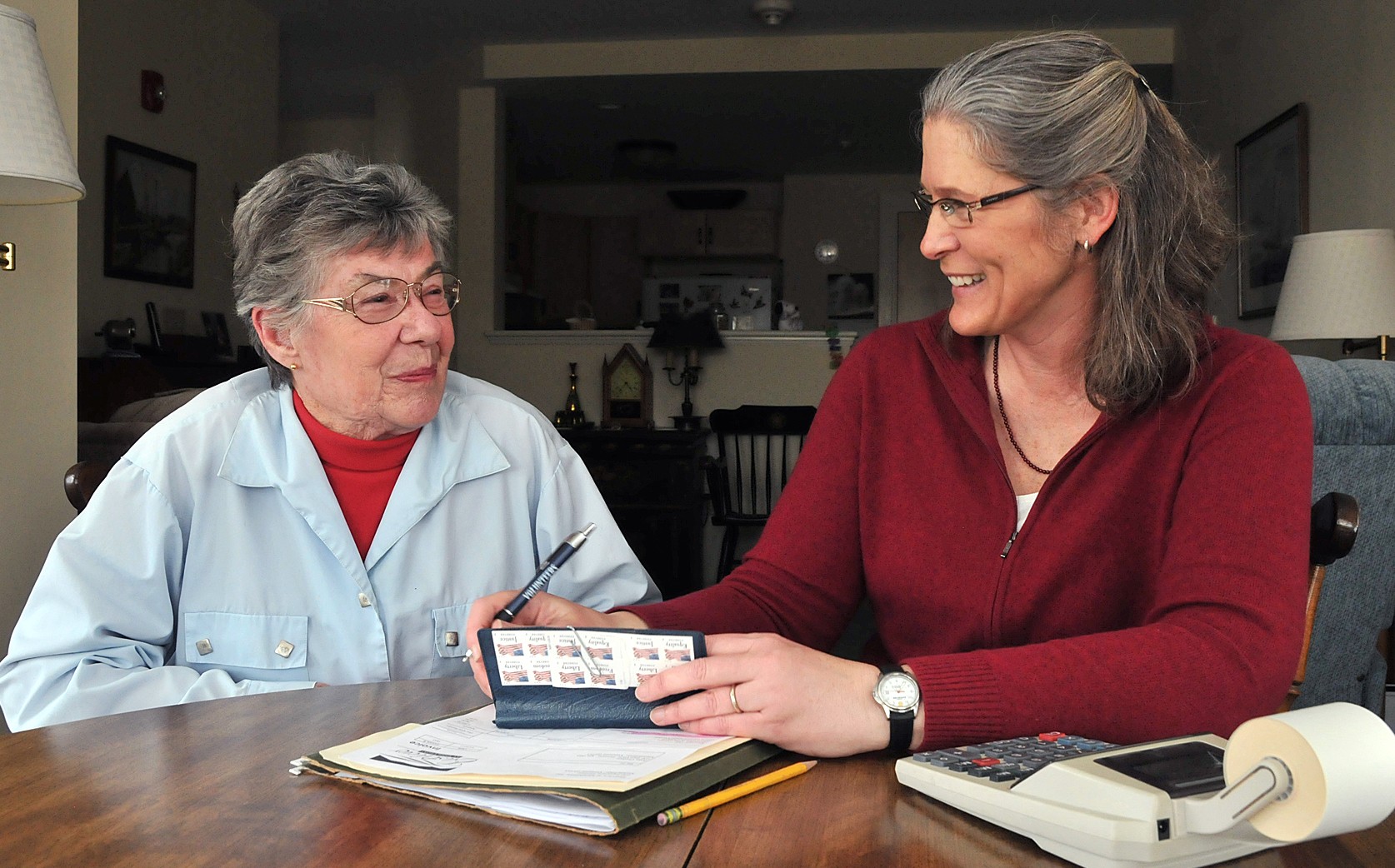As I wrote in my previous post (“A soft approach to getting involved in an elder’s business”), assisting with bill paying and checkbook balancing is a helpful way to start taking a bigger role in a parent or other senior’s affairs. In this online, rapid transaction world, navigating businesses and banking institutions can be an area of increasing frustration for a senior.
How often do you get a live person when you call a credit card company to ask about a bill? How many buttons do you have to push to finally reach someone at your health insurance company? For many seniors, navigating phone systems is an almost impossible feat and, without assistance, it might be easier to simply pay a questionable bill than to try to figure out how to reach someone on the phone.
For one of my clients, I started out simply helping him to sort mail and clean out boxes of historical papers. As his trust in me grew, I began organizing his bills, calling businesses with any questions, preparing his checks to sign and balancing his checkbook. He is a sharp man, and has his own methodical way of doing things – slowly. I couldn’t help but think: “I could put this all online so easily and pay these bills in a flash, tie it to Quicken and have a beautiful printout of income and expenses.”
He was, however, already giving up a lot of control, and sharing a lot of personal financial information with me. If I put everything online, he would be forced to entirely abandon control to me – he did not own a modern computer – which was asking a lot of a proudly independent former businessman.
I learned that when dealing with seniors who are facing a loss of independence, you need to meet them where they are, not where you want to be yourself.
This is often why professional bookkeepers may not be the best choice as a personal financial assistant. They are quick and efficient, and very proficient on the latest online and software advances.
However, we are talking about something more important than efficiency: the slow and often painful eroding of independence that goes along with aging. My goal as a daily money manager is to help my clients feel like they have an extra set of helping hands (and eyes), but they are in control. In this new era of declining independence, I want them to feel as capable and independent as possible. I mold my work to their existing systems and provide the support that they need to maintain that system (to the best of our ability.
My stepmother, always independent, and even more so after my father’s death over a decade ago, was very resistant to my entry into her affairs. As I wrote in a previous blog entry, I simply offered to balance her checkbook one day. That grew into balancing it each month. At the same time, the impact of what is probably Alzheimer’s became more prevalent, and I offered to write out her checks for the bills that came in, always reviewing them with her before she signed them.
Behaving as an assistant – and not showing how things should or could be done – lets a senior with a long history of independence continue to feel in charge of his or her affairs, while the person helping can keep an eye on things and bring questionable payment to the attention of the person.
As trust builds and abilities decline – it could be merely eyesight loss – the transition can be drama free. Today, my stepmother simply puts the mail aside for me to go through, grateful for the help. She signs what I prepare for her, knowing that I have only her best interest at heart. Had I a pushed harder at the start, I doubt we would be where we are without significant conflict.
